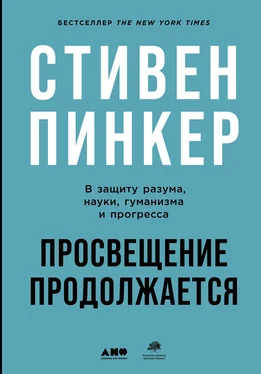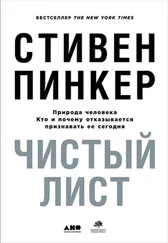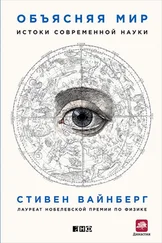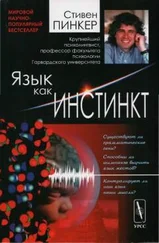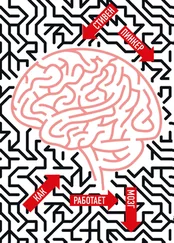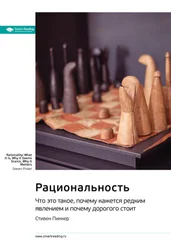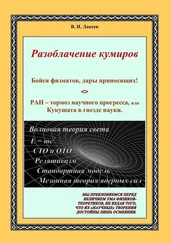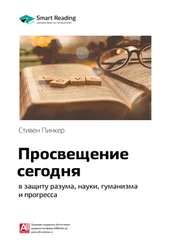Giles, J. 2005. Internet encyclopaedias go head to head. Nature, 438, 900–901.
Glaeser, E. L. 2011. Triumph of the city: How our greatest invention makes us richer, smarter, greener, health-ier, and happier. New York: Penguin.
Glaeser, E. L. 2014. Secular joblessness . London: Centre for Economic Policy Research.
Glaeser, E. L., Ponzetto, G. A. M., & Shleifer, A. 2007. Why does democracy need education? Journal of Economic Growth, 12, 271–303.
Glaeser, E. L., La Porta, R., Lopez-de-Silanes, F., & Shleifer, A. (2004). Do institutions cause growth? Journal of Economic Growth, 9, 271–303.
Gleditsch, N. P. 2008. The liberal moment fifteen years on. International Studies Quarterly, 52, 691–712.
Gleditsch, N. P., & Rudolfsen, I. 2016. Are Muslim countries more prone to violence? Paper presented at the 57th Annual Convention of the International Studies Association, Atlanta.
Gleditsch, N. P., Wallensteen, P., Eriksson, M., Sollenberg, M., & Strand, H. 2002. Armed conflict, 1946–2001: A new dataset. Journal of Peace Research, 39, 615–37.
Gleick, J. 2011. The information: A history, a theory, a flood . New York: Pantheon.
Glendon, M. A. 1998. Knowing the Universal Declaration of Human Rights. Notre Dame Law Review, 73, 1153–90.
Glendon, M. A. 1999. Foundations of human rights: The unfinished business. American Journal of Jurisprudence, 44, 1–14.
Glendon, M. A. 2001. A world made new: Eleanor Roosevelt and the Universal Declaration of Human Rights . New York: Random House.
Global Zero Commission. 2010. Global Zero action plan. http://static.globalzero.org/files/docs/GZAP6.0.pdf.
Global Zero Commission. 2016. US adoption of no rst se and its effects on nuclear proliferation by allies. http://www.globalzero.org/files/nfually_proliferation.pdf.
Glover, J. 1998. Eugenics: Some lessons from the Nazi experience. In J. R. Harris & S. Holm, eds., The future of human reproduction: Ethics, choice, and regulation . New York: Oxford University Press.
Glover, J. 1999. Humanity: A moral history of the twentieth century . London: Jonathan Cape.
Goertz, G., Diehl, P. F., & Balas, A. 2016. The puzzle of peace: The evolution of peace in the international system . New York: Oxford University Press.
Goklany, I. M. 2007. The improving state of the world: Why we’re living longer, healthier, more comfortable lives on a cleaner planet . Washington: Cato Institute.
Goldin, C., & Katz, L. F. 2010. The race between education and technology . Cambridge, MA: Harvard University Press.
Goldstein, J. S. 2011. Winning the war on war: The surprising decline in armed conflict worldwide . New York: Penguin.
Goldstein, J. S. 2015. Is the current refugee crisis the worst since World War II? (Unpublished manu-script.) http://www.joshuagoldstein.com/.
Goldstein, R. N. 1976. Reduction, realism, and the mind. Ph.D. dissertation, Princeton University.
Goldstein, R. N. 2006. Betraying Spinoza: The renegade Jew who gave us modernity . New York: Nextbook/Schocken.
Goldstein, R. N. 2010. Thirty ix arguments for the existence of God: A work of fiction . New York: Pantheon.
Goldstein, R. N. 2013. Plato at the Googleplex: Why philosophy won’t go away . New York: Pantheon.
Gómez, J. M., Verdú, M., González egías, A., & Méndez, M. 2016. The phylogenetic roots of human lethal violence. Nature, 538, 233–37.
Gordon, R. J. 2014. The turtle’s progress: Secular stagnation meets the headwinds. In C. Teulings & R. Baldwin, eds., Secular stagnation: Facts, causes and cures . London: Centre for Economic Policy Research.
Gordon, R. J. 2016. The rise and fall of American growth . Princeton, NJ: Princeton University Press.
Gottfredson, L. S. 1997. Why g matters: The complexity of everyday life. Intelligence, 24, 79–132.
Gottlieb, A. 2016. The dream of enlightenment: The rise of modern philosophy . New York: Norton.
Gottschall, J. 2012. The storytelling animal: How stories make us human . Boston: Houghton Mifflin Harcourt.
Gottschall, J., & Wilson, D. S., eds. 2005. The literary animal: Evolution and the nature of narrative . Evanston, IL: Northwestern University Press.
Graham, P. 2016. The refragmentation. Paul Graham Blog . http://www.paulgraham.com/re.html.
Grayling, A. C. 2007. Toward the light of liberty: The struggles for freedom and rights that made the modern Western world . New York: Walker.
Grayling, A. C. 2013. The God argument: The case against religion and for humanism . London: Bloomsbury.
Greene, J. 2013. Moral tribes: Emotion, reason, and the gap between us and them . New York: Penguin.
Greenstein, S., & Zhu, F. 2014. Do experts or collective intelligence write with more bias? Evidence from Encyclopædia Britannica and Wikipedia. Harvard Business School Working Paper, 15-23 .
Greenwood, J., Seshadri, A., & Yorukoglu, M. 2005. Engines of liberation. Review of Economic Studies, 72, 109–33.
Gregg, B. 2003. Thick moralities, thin politics: Social integration across communities of belief . Durham, NC: Duke University Press.
Gross, N., & Simmons, S. 2014. The social and political views of American college and university professors. In N. Gross & S. Simmons, eds., Professors and their politics . Baltimore: Johns Hopkins University Press.
Guerrero Velasco, R. G. 2015. An antidote to murder. Scientific American, 46–50.
Gunsalus, C. K., Bruner, E. M., Burbules, N., Dash, L. D., Finkin, M., et al. 2006. Improving the system for protecting human subjects: Counteracting IRB mission creep (No. LE06-16). University of Illinois, Urbana. https://papers.ssrn.com/sol3/papers2.cfm?abstractid=902995.
Gurr, T. R. 1981. Historical trends in violent crime: A critical review of the evidence (vol. 3). Chicago: University of Chicago Press.
Gyldensted, C. 2015. From mirrors to movers: Five elements of positive psychology in constructive journalism. GGroup Publishers.
Hafer, R. W. 2017. New estimates on the relationship between IQ, economic growth and welfare. Intelligence, 61, 92–101.
Hahn, R., Bilukha, O., Crosby, A., Fullilove, M. T., Liberman, A., et al. 2005. Firearms laws and the reduction of violence: A systematic review. American Journal of Preventive Medicine, 28, 40–71.
Haidt, J. 2006. The happiness hypothesis: Finding modern truth in ancient wisdom . New York: Basic Books.
Haidt, J. 2012. The righteous mind: Why good people are divided by politics and religion . New York: Pantheon.
Halpern, D., & Mason, D. 2015. Radical incrementalism. Evaluation, 21, 143–49.
Hammel, A. 2010. Ending the death penalty: The European experience in global perspective . London: Palgrave Macmillan.
Hammond, S. 2017. The future of liberalism and the politicization of every thing. Niskanen Center Blog . https://niskanencenter.org/blog/future-liberalism-politicization-everything/.
Hampton, K., Goulet, L. S., Rainie, L., & Purcell, K. 2011. Social networking sites and our lives. Washington: Pew Research Center.
Hampton, K., Rainie, L., Lu, W., Shin, I., & Purcell, K. 2015. Social media and the cost of caring . Washington: Pew Research Center.
Hanson, R., & Yudkowsky, E. 2008. The Hanson udkowsky AI oom debate ebook. Machine Intelligence Research Institute, Berkeley.
Harff, B. 2003. No lessons learned from the Holocaust? Assessing the risks of genocide and political mass murder since 1955. American Political Science Review, 97, 57–73.
Читать дальше
Конец ознакомительного отрывка
Купить книгу
